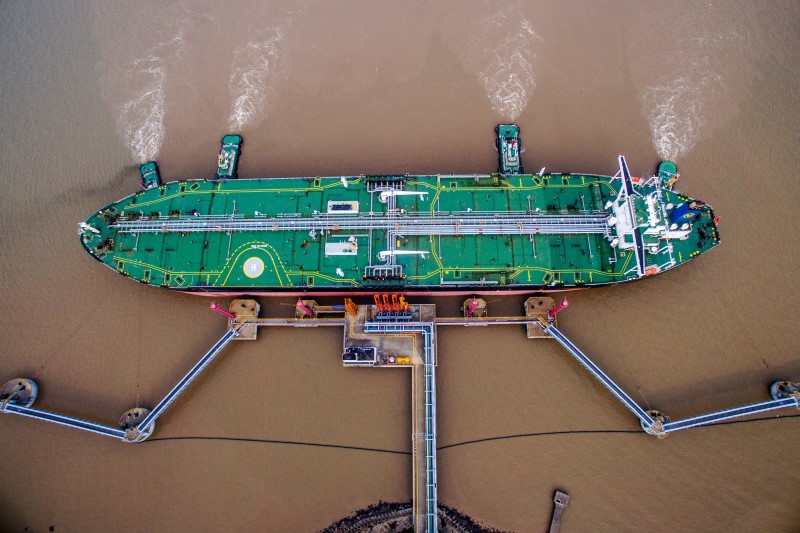(Bloomberg) -- Oil traders are reporting a sharp increase in Iraqi export cargoes for next month, as they look for clues to the country’s ability to meet its OPEC quota.
A larger-than-normal number of Iraqi crude cargoes is being sold in the spot market for October loading, according to five people involved in the market in Europe and Asia. The additional shipments are available on what’s called a destination-free basis, meaning they can be purchased and shipped anywhere.
The extra cargoes probably indicate higher overall output and exports, according to several traders, and would add oil to a market that’s already experiencing a glut.
Prices Hold Up
OPEC has allowed Baghdad to pump more crude next month by giving it more time to make up for breaching its quota earlier in the year. But the puzzle for the market is whether the increase in cargoes means Iraq could breach its new quota of 3.6 million barrels a day -- just as the cartel is redoubling efforts to tighten discipline.
So far at least, spot prices for Iraqi crude are holding up, suggesting that any increase is being easily absorbed. Basrah Light for delivery in October has recently changed hands at a premium of 60 cents a barrel above its official selling price, versus a premium of 30 cents for September loadings.
An official familiar with Iraq’s export plans said any additional barrels won’t violate the quota. Neither Iraq’s oil ministry nor state crude marketer SOMO gave immediate comments on plans for production and sales volumes next month.
The Iraqi cargoes offered for October could amount to 5 million to 10 million barrels of crude more than usual, one trader estimated. That works out at 160,000 to 320,000 barrels a day.
Iraq said it pumped just below 3.6 million barrels a day in August and, according to tanker-tracking data up to mid-September, exports are on course to rise this month.
OPEC+ Wrestles
The Gulf nation’s output is important for the overall market because it is OPEC’s biggest producer after Saudi Arabia. And the more united the alliance is, the more successful it’s likely to be in bolstering oil prices.
The Organization of Petroleum Exporting countries and its partners -- a group known as OPEC+ and led by Saudi Arabia and Russia -- are wrestling with a collapse in global demand due to the coronavirus. As the nations restrict supply, Saudi oil minister Prince Abdulaziz bin Salman has railed against members, including Iraq, who haven’t met their quotas. Iraq has repeatedly pledged to fulfill its commitments, and its oil ministry did so again on Thursday in a statement to reporters.
OPEC+ agreed to take nearly 10 million barrels of crude, about 10% of normal supply, off the market starting in May. That helped Brent crude bounce back above $40 a barrel, though the benchmark is still down 37% this year.
Output constraints have eased since the end of June. And at a meeting last week, the cartel granted Iraq and other laggards more time to implement cuts meant to compensate for past over production. The official with knowledge of Iraq’s export plans says that decision would allow the country to produce and sell more oil, while remaining within limits.
Like many other OPEC+ members, Iraq’s economy has been battered by the plunge in oil prices. The Iraqi budget deficit will hit 22% of gross domestic product this year, higher than anywhere else in the Middle East and North Africa, according to the International Monetary Fund.
Iraq doesn’t release a full monthly loading program for its exports, making it difficult to see a full picture of sales.
The higher volume of October Basrah barrels available may indicate that international oil companies that partner with Iraq at some of its biggest fields are getting more crude. As production rises, those companies would receive a larger proportion of output, said the Iraqi official.
Middle Eastern producers normally sell on long-term contracts to refiners who have to take their cargoes to a specific crude-processing plant. A majority of buyers of Iraqi crude under long-term contracts in Asia received the allocation they requested for October sales, according to a Bloomberg survey.
©2020 Bloomberg L.P.
